- europages
- >
- Glass- industrial
- >
- HILGENBERG GMBH
- >
- products
HILGENBERG GMBH
Germany
Manufacturer/ Producer

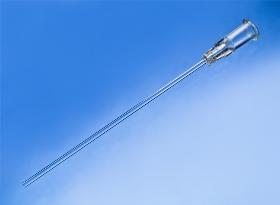
HILGENBERG GMBH
Germany
Analogous to conventional steel needles, as used in medical applications, we manufacture special needles with a glass capillary instead of a metal cannula. In many applications, glass capillaries offer decisive advantages compared with metal cannulas: absolutely smooth internal and external surfaces cannulas smaller than 500 µm are highly flexible diameter of less than 200 µm are possible – down to 70 µm inert, chemically resistant material, also at high temperatures transparent, for observations in the cannula very precise internal and external dimensions glass reservoirs can be integrated in the needle numerous configurations, applications, and customer-specific designs are possible The only disadvantage of glass needles compared with their steel counterpart is their lower mechanical strength. Standard versions Capillary is mounted directly in the syringe coupling Capillary is enclosed in a sheathing tube to increase its strength, but only the very fine capillary projects at...
Request for a quote
HILGENBERG GMBH
Germany
We have developed special glass cannulas that greatly simplify filling our test tubes with liquid samples. Our thinnest cannula has a diameter of less than 0,1 mm. This enables even the finest test tubes to be filled without problems. A standard Luer connection enables the cannula to be fitted to conventional one-way syringes or microliter syringes. Our filling needles are made of borosilicate glass, whereby the shaft consists of plastic into which the needle is bonded. Various diameters are available. Syringe needles for filling Mark-tubes with liquids
Request for a quote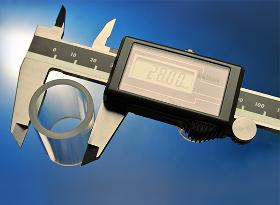
HILGENBERG GMBH
Germany
As a special service, we offer glass tubes and cylinders with calibrated inside diameters. Hereby, a special tool is used to bring the internal diameter precisely to the desired shape and dimension. Apart from the standard circular shape, the tubes can also be square or conical. Moreover, the outer tube diameter can be calibrated by means of cylindrical grinding. This grinding procedure results in a matt outer surface, which can be corrected by subsequent “technical polishing”.
Request for a quote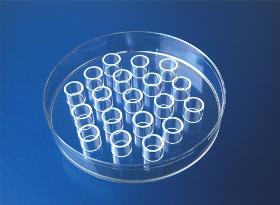
HILGENBERG GMBH
Germany
Cloning cylinders or rings are ideally suited for separate cloning if individual cells or cell groups on a nutrient solution. A specific cell or cell group is separated from the other cells in the nutrient solution by simply placing the cloning ring over it. The rings are made of high-grade borosilicate glass, and can be thermally sterilized without problems. The ring faces are ground perfectly flat, enabling the rings to be fixed e.g. to the floor of a Petri dish by means of a suitable grease. Subsequently, the nutrient solution is filled into the ring. The grease provides a seal between the ring and the Petri dish, whereby the precision-ground flat end ensures that very little grease is required to provide an optimum seal. The same applies in the case of Petri dishes prepared with a nutrient solution – here, the seal is provided simply by pressing the ring into the solution and down to the floor of the dish. Cloning cylinders
Request for a quote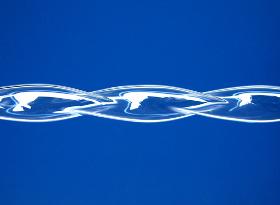
HILGENBERG GMBH
Germany
Twisted glass tubes and capillaries are produced simply by heating and twisting. By this means, the tubes obtain a large internal surface in relation to their length, enabling them to be used e.g. as cooling sections. Another application area is for ornamental and design articles.
Request for a quote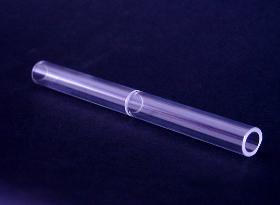
HILGENBERG GMBH
Germany
If required, we can supply capillaries and tubes with predetermined break points. For this purpose, the component is notched at the required breaking location. If the component is then subjected to a bending force, it will break at the notched point. To prevent unintended breakage, we recommend using medium or thick-walled tubes and capillaries.
Request for a quote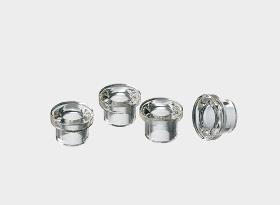
HILGENBERG GMBH
Germany
These short molded components are fused to measurement electrodes and serve as filling/draining ports for the electrodes. The beaded edge is ideal for connecting rubber or plastic hoses. The ports are usually made of lead, borosilicate, and soda glass.
Request for a quote
HILGENBERG GMBH
Germany
Boiling rods Boiling rods are ideally suited to prevent superheating during boiling or distillation in glass beakers or Erlenmeyer flasks. They are made of high-grade soda glass, are reusable, and excellently suited for many applications. Stirring rods Used for mixing and homogenizing mixtures of chemicals and samples. They are also ideal for stirring hot or boiling substances. They are made of high-grade soda glass, are reusable, and excellently suited for many applications. For special applications, they are also available in borosilicate or quartz glass.
Request for a quote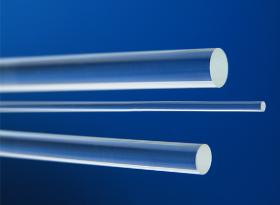
HILGENBERG GMBH
Germany
We provide special rods and fibers, on whose tip a drop of the sample can be filled conveniently into a test tube. Fibers with a diameter of less than 0,1 mm can be inserted even into the smallest test tubes. These rods and fibers are mainly made of borosilicate glass 3.3. We can also supply rods and fibers that are made of the same type of glass as your test tubes.
Request for a quote
HILGENBERG GMBH
Germany
Dropper pipettes are characterized by very short tips and relatively large volumes. A rubber or silicone teat (see Accessories) at the upper end of the pipette enables the drops formed at the tip to be dispensed easily and conveniently. The pipette tip can be suitably shaped to create the required drop sizes. The same applies for the rim, which can be smooth or slightly flanged to ensure a secure hold of the teat or tubing system. Our dropper pipettes come in various sizes and versions.
Request for a quoteeuropages also recommends
A selection of companies related to the activity:
A selection of products that might interest you
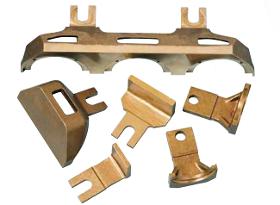
SRI - SAINT-REMY INDUSTRIE
France
We produce take-out tongs in aluminium bronze. Pieces are delivered as-cast, rough or fully machined.
Request for a quote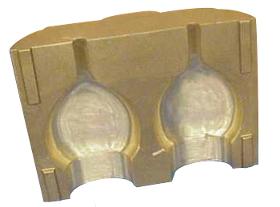
SRI - SAINT-REMY INDUSTRIE
France
We produce bottle moulds and bottom plates in special alloys based on aluminium bronze or nickel bronze. Pieces are delivered as-cast, rough or fully machined.
Request for a quote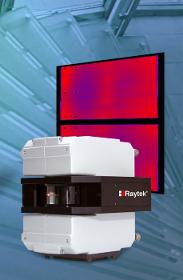
FLUKE PROCESS INSTRUMENTS GMBH
Germany
Raytek GS150 thermal imaging systems enable automated quality control in glass bending, forming, annealing, and tempering processes. The GS150LE variant is especially designed for Low-E (low emissivity) glass / one-side coated flat glass. It features automatic emissivity correction. The systems are based on the Raytek MP150 infrared line scanner, which has a max. resolution of 1024 points per line, a max. 150 Hz scanning frequency, and an up to 90° wide field of view. SYSTEM PROPERTIES • Automated temperature monitoring • Visualization on PC • Ethernet TCP/IP interface integrated in the line scanning system • PC-independent alarm output • PC-independent analog outputs 3 x 4 – 20mA BENEFITS • Improve profitability and product quality • Reduce set-up time • Detect defects quickly • Automate quality monitoring for ISO9000 • Reduce scrap • Efficiently manage the heat balance in the oven • Automatically adjust the emissivity value when changing glass types or coatings
Request for a quote
IGUS® GMBH
Germany
xiros® polymer ball bearing – now electrically conductive xiros® F180 polymer ball bearings offer protection against electrostatic discharge. In this type with ESD protection (Electro Static Discharge), the newsly developed ball bearing material xirodur® F180 is used. The new development is applicable up to +80°C and offers a long service life. Free of lubrication and maintenance. Electrically conductive (ESD protection). economical Lightweight. Industries:Semiconductor industry, handling, paper, textile and glass industries, etc., furniture industry etc. d1 [mm]: xiros® material - Material data xiros® polymer ball bearing design, applications, development and testing xiros® chemical resistance xiros® F180 polymer ball bearings offer protection against electrostatic discharge. In this type with ESD protection (Electro Static Discharge), the newsly developed ball bearing material xirodur® F180 is used. The new development is applicable up to +80°C and offers a long service life. Free of lubrication and maintenance. Electrically conductive (ESD protection). economical Lightweight. Industries:Semiconductor industry, handling, paper, textile and glass industries, etc., furniture industry etc. PA-cage made of xirodur® F180, stainless steel balls -40°C to +80°C d1 [mm]:
Request for a quoteRequest for quotes
Create one request and get multiple quotes form verified suppliers.
- Only relevant suppliers
- Data privacy compliant
- 100% free



